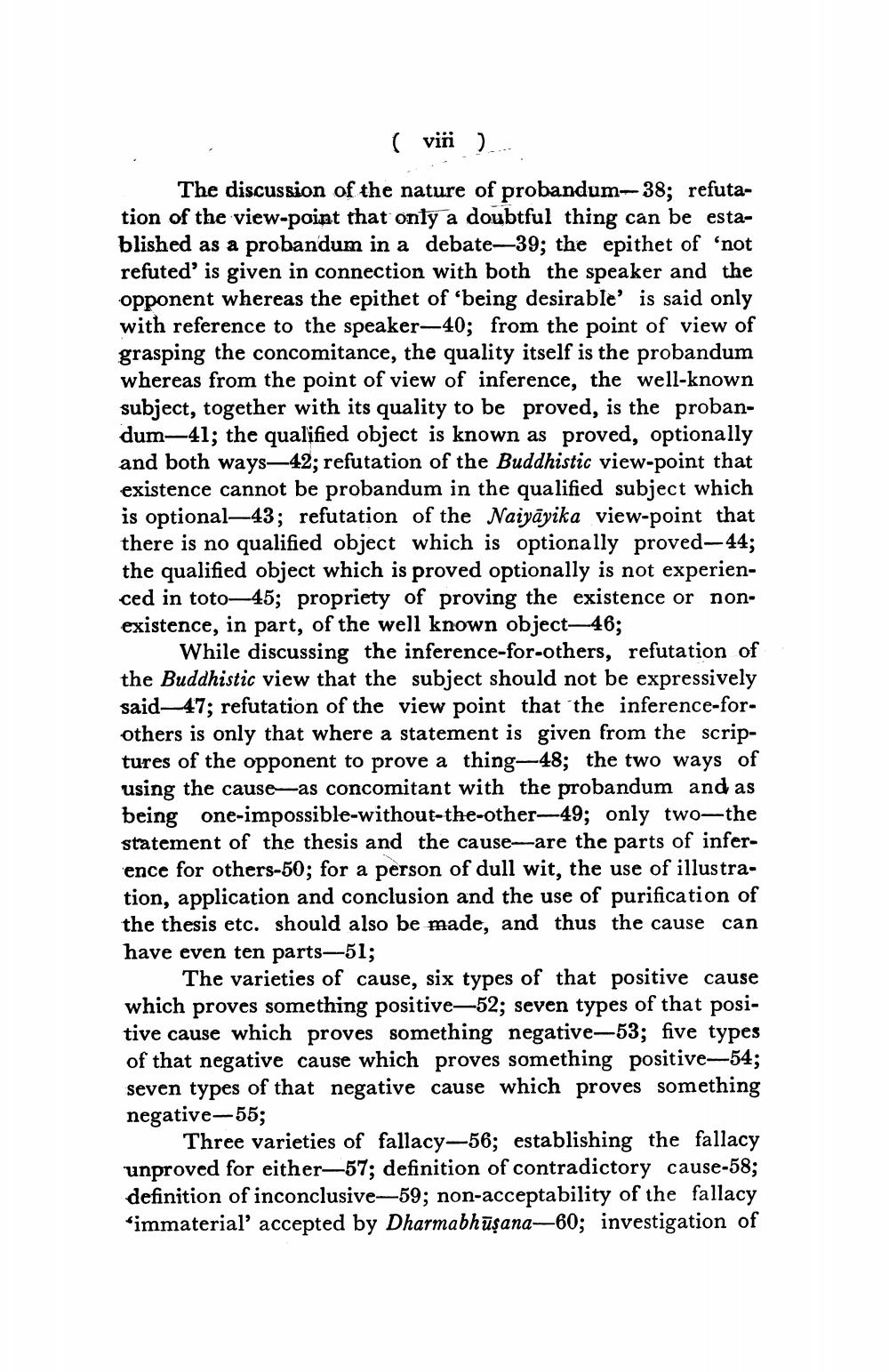________________
(
viï
)...
The discussion of the nature of probandum-38; refutation of the view-point that only a doubtful thing can be established as a probandum in a debate-39; the epithet of 'not refuted' is given in connection with both the speaker and the opponent whereas the epithet of being desirable' is said only with reference to the speaker-40; from the point of view of grasping the concomitance, the quality itself is the probandum whereas from the point of view of inference, the well-known subject, together with its quality to be proved, is the probandum–41; the qualified object is known as proved, optionally and both ways—42; refutation of the Buddhistic view-point that existence cannot be probandum in the qualified subject which is optional–43; refutation of the Naiyāyika view-point that there is no qualified object which is optionally proved-44; the qualified object which is proved optionally is not experienced in toto—45; propriety of proving the existence or nonexistence, in part, of the well known object-46;
While discussing the inference-for-others, refutation of the Buddhistic view that the subject should not be expressively said-47; refutation of the view point that the inference-forothers is only that where a statement is given from the scriptures of the opponent to prove a thing—48; the two ways of using the causeas concomitant with the probandum and as being one-impossible-without-the-other-49; only two-the statement of the thesis and the cause~are the parts of inference for others-50; for a person of dull wit, the use of illustration, application and conclusion and the use of purification of the thesis etc. should also be made, and thus the cause can have even ten parts-51;
The varieties of cause, six types of that positive cause which proves something positive–52; seven types of that positive cause which proves something negative-53; five types of that negative cause which proves something positive—54; seven types of that negative cause which proves something negative-55;
Three varieties of fallacy-56; establishing the fallacy unproved for either-57; definition of contradictory cause-58; definition of inconclusive—59; non-acceptability of the fallacy ‘immaterial accepted by Dharmabhūşana—60; investigation of




